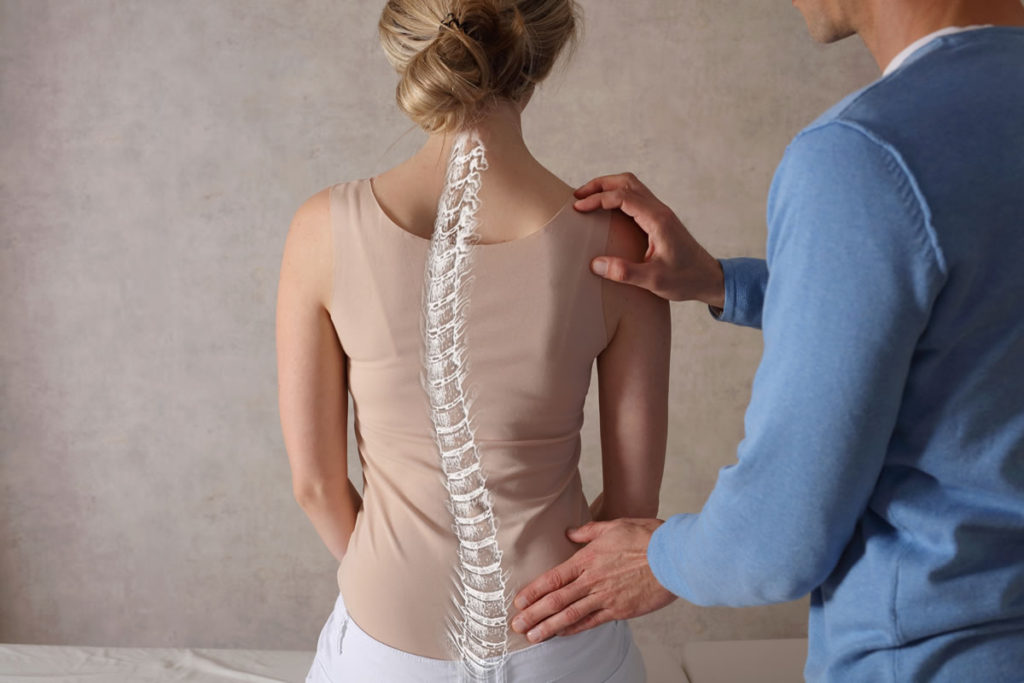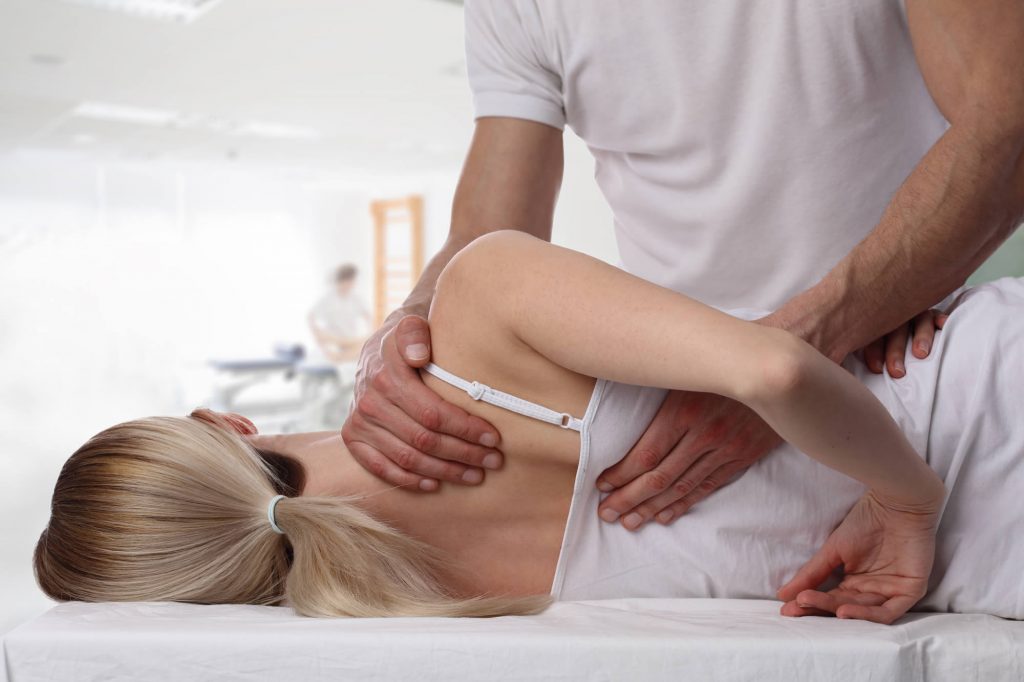What is Scoliosis and what Causes it?
Scoliosis is the most common deformity of the spine comprising of both a sideways bend and a rotation of the spine that creates an “S” shape combined with a twisting of the vertebral bodies. This deformity can often cause pain and fatigue depending on the severity, it is also a regular underlying factor for many secondary complications such as muscle strains and referred pain.
Scoliosis is often caused by a number of factors such as genetics, postural habits, growth factors. Often the cause is unknown and it can affect anyone at any age. It is most common in adolescents. Scoliosis can be caused by secondary factors such as a leg length discrepancy or muscle imbalance from playing racket sports or simply by always carrying the bag on one shoulder all day.


What are the symptoms of Scoliosis?
Symptoms of Scoliosis may include:
- Asymmetric alignment in the body such as uneven hip and shoulder levels
- One prominent shoulder blade
- Dissimilar size or location of breasts in females
- Often there is a muscle masses that causes a “hump” on one side of the body
- Pain
- Fatigue
The pain caused by the irregular shaping of the spine and the resulting muscular compensation can vary from being mild to severe, and often affects the area directly surrounding the spine itself. Often there is stiffness in the back and neck.
Physiotherapy treatment for Scoliosis?
Diagnosing Scoliosis is relatively easy to do but the rehabilitation process can be more challenging. If you think you may have Scoliosis you will benefit from physiotherapy.
Physiotherapy treatment will help reduce your pain and stiffness, increase your muscle strength and primarily improve your posture to prevent the underlying issue returning.
Physiotherapy treatment at Recover Physio for Scoliosis may include:
- Continual postural management including advice and adaptations. Mirror therapy is often used to increase awareness of poor posture and correct it accordingly
- Stretching and strengthening exercises for the back and shoulders
- Manipulation and mobilisations
- Mobilisations with movement
- Soft tissue massage
- Ergonomic assessment and adjustments
In more serious forms of Scoliosis, bracing or surgery may be needed. Your physiotherapist at Recover Physio will advise if this option is required.

